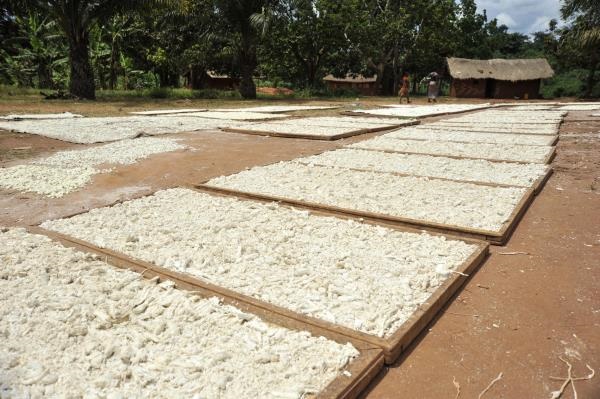
12 February 2016, Rome - Over 400 scientists, representatives of government, civil society, the private sector, academia, farmers' associations and cooperatives are set to participate in the FAO-hosted international symposium "The Role of Agricultural Biotechnologies in Sustainable Food Systems and Nutrition" from 15-17 February 2016.
This scientific conference, will explore how agricultural biotechnologies can benefit family farmers, particularly those in developing countries, who need to improve nutrition and food systems while facing the challenges of poverty, climate change, and population growth.
Ahead of the symposium, FAO issued a worldwide public call of interest to ensure the broadest possible range of participants. All non-state actors were given equal space, and they responded according to their interests.
"The symposium is an open and neutral forum where everybody can come and express their opinions and concerns, while exploring how the results of knowledge and innovation can be put into the hands of family farmers, producers and consumers, especially in developing countries," said Marcela Villarreal, Director of FAO's Office for Partnerships, Advocacy and Capacity Building.
The symposium focuses mainly on the broad range of biotechnologies that could result in yield increases, better nutritional qualities, and improved productivities of crops, livestock, fish and trees benefitting family farmers and their food systems, nutrition and livelihoods. A high-level ministerial segment will take place on 16 February.
The symposium will cover a broad range of biotechnologies. While this encompasses genetically modified organisms (GMOs), they are not its main focus.
"We have invited all agricultural sectors from around the world to participate in the symposium. We want all the views on this topic to be heard. I believe we have a solid and representative base of participants on which to build the discussion. FAO has an obligation to serve as a neutral forum for debate to assist in identifying the benefits and risks associated with agricultural biotechnologies," said Rodrigo Castaneda, Chief of FAO's Partnerships Unit.
FAO Director-General José Graziano da Silva will deliver a welcome address at the start of the two-and-half day event.
The symposium will close on 17 February with a final plenary session where a summary of the its technical discussions will be presented.
The event will be webcast live here.